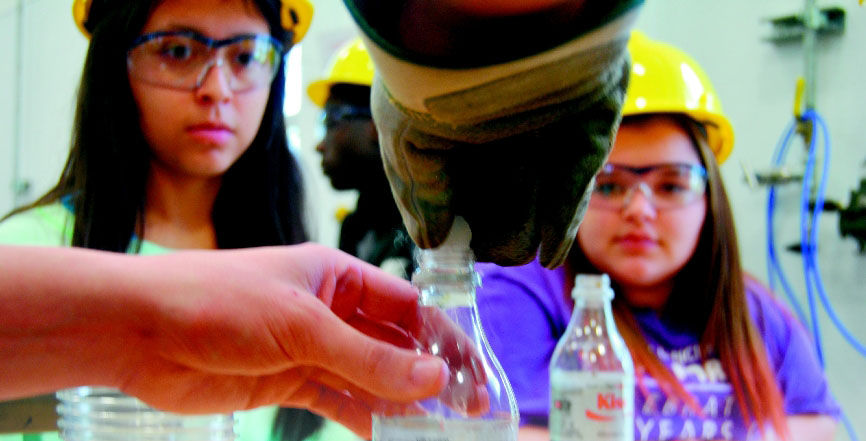Times wins 8th consecutive Newspaper of Year title
June 24, 2015
Our Mistake
June 24, 2015Students from Lafourche and Terrebonne high schools explored careers in the oil and gas industry during a week-long camp held at Fletcher Technical Community College.
About 50 students performed lab experiments, met with professionals who work in the field and toured the Shell pipeline facility on Coteau Road in Houma. The camp included a mix of classroom instruction by professional engineers and scientists and experiments to link everyday life to oil and gas processes.
Students showed their parents, instructors and executives from Shell what they learned through projects at the end of the week.
The Energy Venture Production Camp is sponsored by Work It! Louisiana and the South Central Industrial Organization and financed through a $25,000 grant offered by Shell Oil Company. Its intent is to spark in the teenagers an interest in pursuing careers in oil and gas.
Half of the oil and natural gas industry labor force will be eligible for retirement within 10 years, according to Fletcher’s website. The problem extends globally to all fields, with many economists predicting that by 2030, many of the world’s largest economies will have more jobs than adult citizens to do those jobs.
Nicol Blanchard, college & career transition coordinator for Fletcher, calls it “The Great Crew Change.”
Shell approached the coordinator track studems as they progress Rhrough high school and college in an effort to groom them for careers in the industry.
“The purpose of the camp is to introduce kids to STEM careers,” Integrated Production Technology department head Alvin Justelien said. STEM careers are those in science, technology, engineering and math.
“Today, we’re making root beer,” Justelien said, explaining that, to make crude easier to pump out of an oil deposit, sometimes gas is pumped to free viscous substances. On this day, students were mixing water, sugar and root beer extract in a bottle.
But they were carbonating it, too.
Campers, with the help of instructors and Fletcher student counselors, then dropped a piece of dry ice into the 20-ounce bottle and capped it with tops fitted with valves to release the pressure. The dry ice, being no more than frozen carbon dioxide, the same gas that gives sodas fizz, goes straight from solid to gas.
The valves relieve the pressure so the bottles don’t explode.
Students flinched as valves started making sudden popping noises, each pop meaning C02 was just purged. But they smiled. After the popping stopped – voila – fizzy homemade root beer.
Precious Yanez, a 10th grader at H.L. Bourgeois, said she enjoyed learning how oil gets from deep within the Earth to the pump.
“There’s a lot more [to the] process of the oil and gas industry,” she said. “It sparked an interest.”







